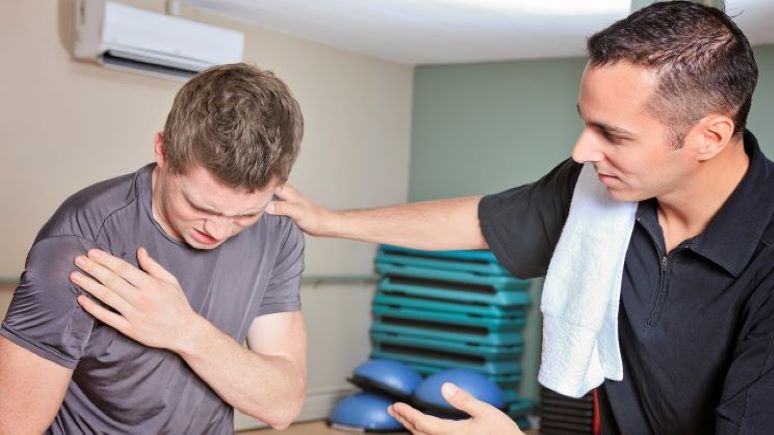Biceps tendinitis, sometimes spelled “tendonitis,” is one type of tendon inflammation or irritation of the arm’s tendons. Tendons are strong, fibrous, rope-like structures that connect muscles to bones.
The biceps muscle is the strong muscle found in the front part of the upper arm. It helps keep the ball of the humerus, the upper arm bone, in the shoulder socket. The biceps also helps decelerate and accelerate the arm when the person performs overhand movements like overhand pitching and tennis.
The biceps muscle is attached at its upper end to the shoulder in two places by tendons. At its lower end, tendons connect this muscle to the radius, one of the bones in the forearm. Tendinitis of the biceps occurs when the biceps tendons become irritated or inflamed.
What causes biceps tendinitis?
Generally, the cause of biceps tendinitis is a wear and tear process that occurs as a person becomes older. With age, the collagen in the tendons starts to degenerate. Therefore, it loses its elasticity and, as a result, there is more possibility for ruptures, irritation, and tearing.
In addition, biceps tendon injuries and biceps tendinitis usually result from damage to the tendon, which occurs over time due to repetitive activities that involve raising the arm over the head. As a result, athletes may have a higher risk of biceps tendinitis. It happens because of the excessive use and straining of the tendons caused by forcefully moving the arm or lifting heavy weights. In addition, overhand motions such as serving a tennis ball, playing handball, swinging from bars or ropes, and others can increase a person’s chances of developing biceps tendinitis.
Biceps tendinitis risk factors
Some factors can increase the risk of biceps tendinitis development. They include:
- age over 30
- athletics or occupation
- existing shoulder damage
- smoking
- excessive weight
Click Here to read about Symptoms.















Leave a Reply
You must be logged in to post a comment.